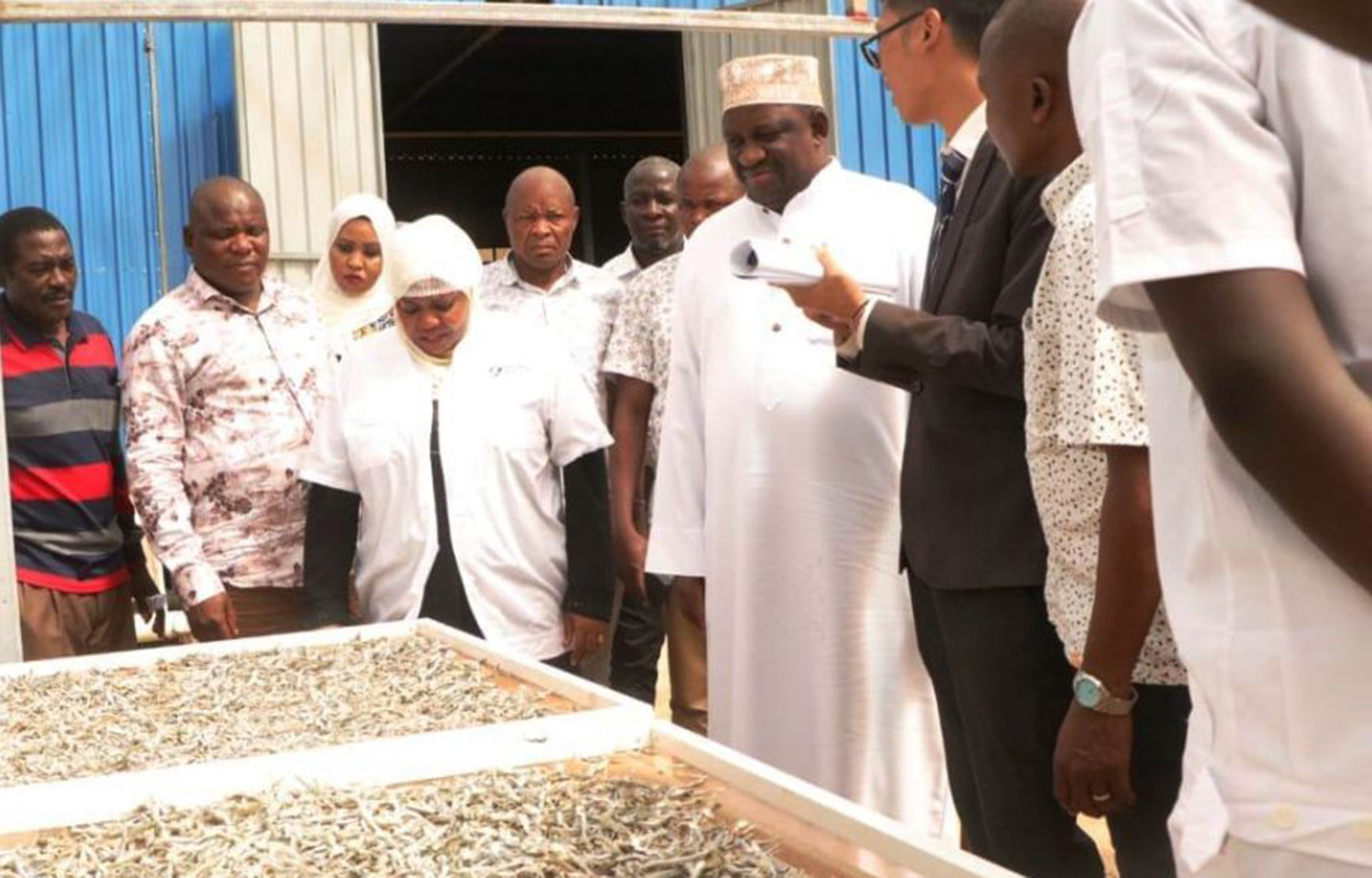Chinese snack food maker Jinzai Foods Group has been honored by the Chinese government for promoting Sino-African trade.
Jinzai Foods Group, which opened an anchovy processing plant in Shimoni – a port town in southern Kenya near the Tanzanian border – in 2023 through its Huawen Foods Kenya subsidiary, was one of 10 firms awarded special recognition at the recent Belt and Road National Firms Conference in Changsha, China. Jinzai Foods Group Head Liu Zhi Yong was also honored at the event, which was organized by the Belt and Road Initiative Chamber of Commerce.
Speaking at the conference, Willy Bate, Kenya’s ambassador to China, said he had intervened with Kenyan Customs authorities to ensure an efficient supply chain for Jinzai’s sourcing operations in Kenya.
After securing an export license from the Kenyan government, Jinzai sent its first Kenyan anchovies to China last year. At a ceremony commemorating the milestone, Huawen Foods Kenya Managing Director Liu Zhiyong praised the work completed by local officials to facilitate his company’s operations in Kenya.
"We are happy to be in Kwale providing work opportunities to the local people. This is the first batch of exports to China, and we hope for win-win economic and trade cooperation between China and Kenya," Zhiyong said, according to The Star. "China has a population of 1.4 billion people, and anchovies are mostly used in making snacks. We can, therefore, say that this type of business has a profit margin which is unbelievable, and that’s what made us venture into this business."
Zhiyong said his firm is providing local fishermen training on modern vessels and on usage of modern processing technology and equipment as a means of maximizing production and profits. He also said his company planned to introduce better fishing methods and storage equipment to continue to improve the quality of local catch.
Jinzai Foods now claims it sells 1.3 billion units per year of its Xiaoyu sealed snack packs, which feature the anchovies, across China. Building on that business, the company has announced it will expand its aquaculture and fisheries sourcing operations in Kenya via the planned China-Africa Kenya Fishery Industrial Park.
Kenya is heavily reliant on Chinese seafood and other imports, as Chinese manufactured goods dominate African markets; however, semi-processed Chinese seafood has undercut local producers on price.
In response, last year, several members of Kenya’s parliament sought to introduce a levy on Chinese seafood imports – an effort that has thus far been unsuccessful. In 2021, the country’s government backed away from a proposed outright ban on Chinese fishery imports, with then-Kenya Agriculture Minister Peter Munya expressing concern the country had insufficient local supply to make up for lost Chinese imports.
China imported CNY 16.1 billion (USD 2.3 billion, EUR 2 billion) worth of African agri-food and seafood products in the first five months of 2023, up 26.5 percent year over year. Yet the figure is modest in the context of the shipments from China’s major suppliers of agricultural commodities. Brazil exported USD 78 billion (USD 10.9 billion, EUR 9.3 billion) worth of grain, oilseeds, and meat products to China in 2022.








